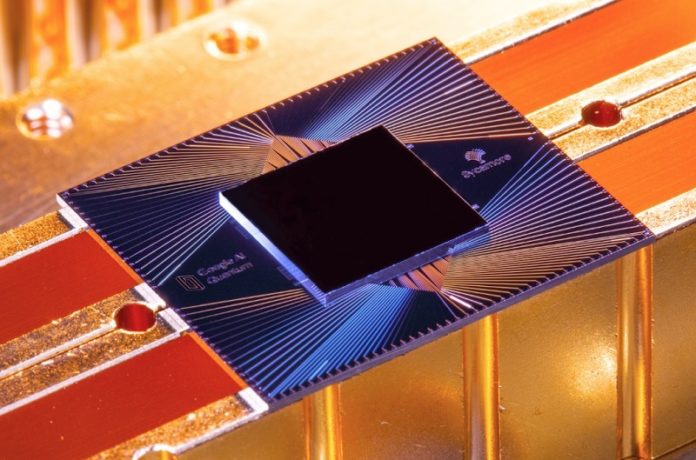
According to an official statement from Google and a paper published by Google AI Quantum team researchers on the journal Nature (worth reading even for non-experts), its 54 qubit quantum processor Sycamore has achieved quantum supremacy — “a milestone on the path to full-scale quantum computing”. The paper had leaked on the NASA website some weeks ago, but was quickly taken down.
The processor produced a calculation in 200 seconds that the world’s fastest classical supercomputer would take 10,000 years to perform. This experiment marks the first computation that can be performed only on a quantum processor.
The statement said that the Sycamore quantum computer is fully programmable and can run general-purpose quantum algorithms. Since achieving quantum supremacy results, the Google team has already been working on near-term applications, including quantum physics simulation and quantum chemistry, as well as new applications in generative machine learning, among other areas.
Along with the hardware, the company successfully tested the first widely useful quantum algorithm for computer science applications: certifiable quantum randomness. Randomness is an important resource in computer science, and quantum randomness is the gold standard, especially if the numbers can be self-checked (certified) to come from a quantum computer. Testing of this algorithm is ongoing, and in the coming months Google plans to implement it in a prototype that can provide certifiable random numbers.
The team, said the paper, has two main objectives going forward:
- First, it intends to make the supremacy-class processors available to collaborators and academic researchers, as well as companies that are interested in developing algorithms and searching for applications for today’s NISQ processors.
- Second, it is investing in team and technology to build a fault-tolerant quantum computer as quickly as possible. Such a device promises a number of valuable applications: helping design new materials — lightweight batteries for cars and airplanes; new catalysts that can produce fertilizer more efficiently (a process that today produces over 2% of the world’s carbon emissions); and more effective medicines.
“Quantum processors have thus reached the regime of quantum supremacy. We expect that their computational power will continue to grow at a double-exponential rate: the classical cost of simulating a quantum circuit increases exponentially with computational volume, and hardware improvements will probably follow a quantum-processor equivalent of Moore’s law doubling this computational volume every few years.”
“As a result of these developments, quantum computing is transitioning from a research topic to a technology that unlocks new computational capabilities. We are only one creative algorithm away from valuable near-term applications,” the paper concluded.















